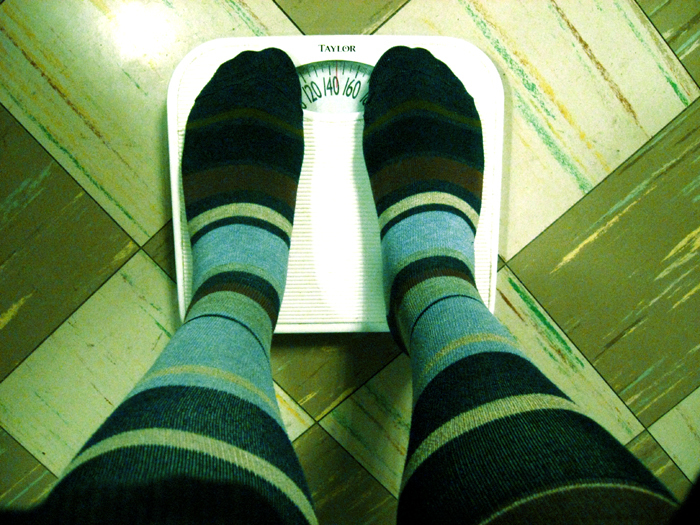-
Tips for becoming a good boxer - November 6, 2020
-
7 expert tips for making your hens night a memorable one - November 6, 2020
-
5 reasons to host your Christmas party on a cruise boat - November 6, 2020
-
What to do when you’re charged with a crime - November 6, 2020
-
Should you get one or multiple dogs? Here’s all you need to know - November 3, 2020
-
A Guide: How to Build Your Very Own Magic Mirror - February 14, 2019
-
Our Top Inspirational Baseball Stars - November 24, 2018
-
Five Tech Tools That Will Help You Turn Your Blog into a Business - November 24, 2018
-
How to Indulge on Vacation without Expanding Your Waist - November 9, 2018
-
5 Strategies for Businesses to Appeal to Today’s Increasingly Mobile-Crazed Customers - November 9, 2018
Frequent self-weighing may cause depression in adolescents
The 10-year study tracked nearly 2,000 adolescents, most of whom were female.
Advertisement
The results indicated that there were links between self-weighing and an increase in weight concerns and depression and lowered body satisfaction or self-esteem for females.
Additional to that, researchers calculated the body-mass index (BMI) of each participant.
Self-weighing, ideal weight, weight concern, body satisfaction, self-esteem, and depressive symptoms were ranked by participants using a Likert scale.
“Females who strongly agreed they self-weighed reported engaging in extremely unsafe weight-control behaviors at a rate of 80 percent”, Carly R. Pacanowski, lead author of the study, said in a statement. Because eating patterns develop early in life, the researchers behind University of Minnesota’s Project EAT (Eating and Activity in Teens and Young Adults) are attempting to identify the environmental, personal, and behavioral factors behind activity and eating specifically among teens and young adults.
It is agreeable that self weighing may help adults in controlling their weight effectively but for this habit may end up having severe psychological results in teenagers and young adults. “This makes it critical that obesity-prevention programs avoid exacerbating these predictors by understanding how behaviours such as self-weighing affect teens”. Recent research suggests that the more a woman weighs herself, the more likely she is to be depressed and have lower self-esteem. A 2012 study that drew its data from a different Project EAT report also found that teens who frequently weigh themselves are at an increased risk for risky health behaviors and poor psychological outcomes.
By studying them for over ten years, scientists were able to correlate changes in their weight with possible changes seem in the other variables mentioned.
“Clinicians should ask adolescent patients about self-weighing at office visits to determine any benefits our negative outcomes”, said Pacanowski in a press release. “Adolescents or young adults may feel more comfortable reporting to their primary care provider information about how often they weigh themselves compared with discussing how depressed they feel or responding to questions about self-esteem”, the author explained.
Advertisement
Could self-weighing be harmful for teens and young adults?





























